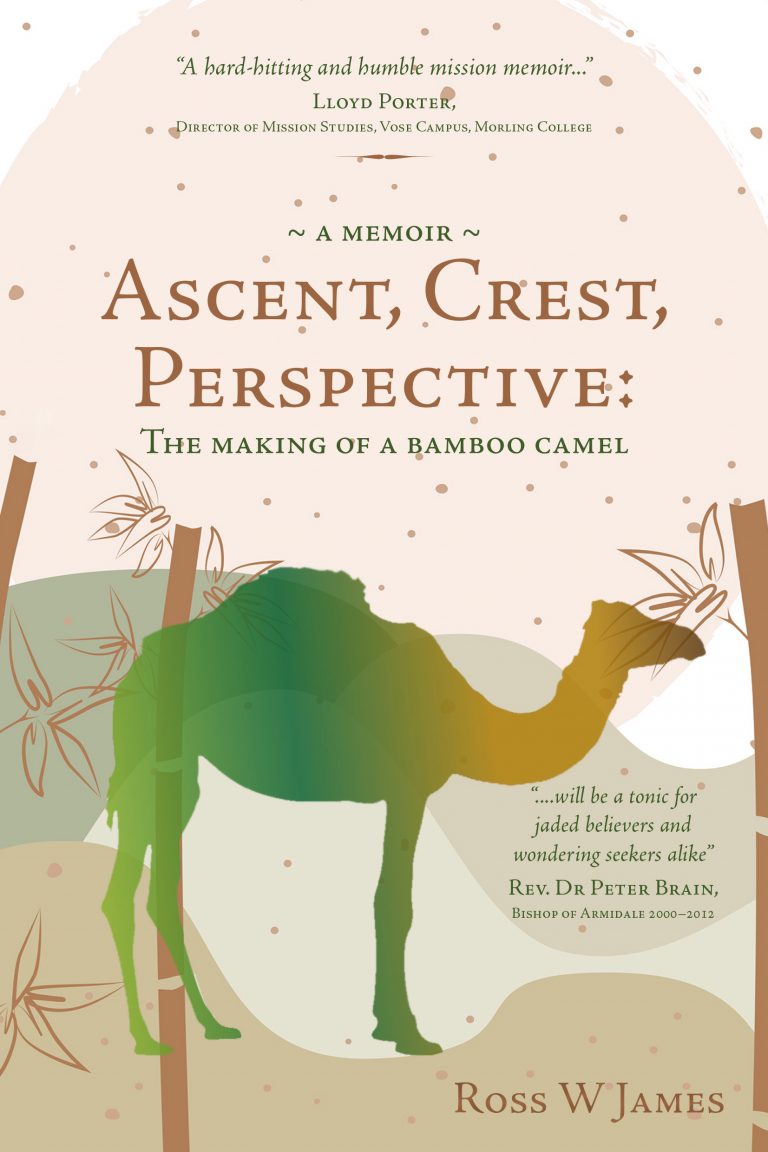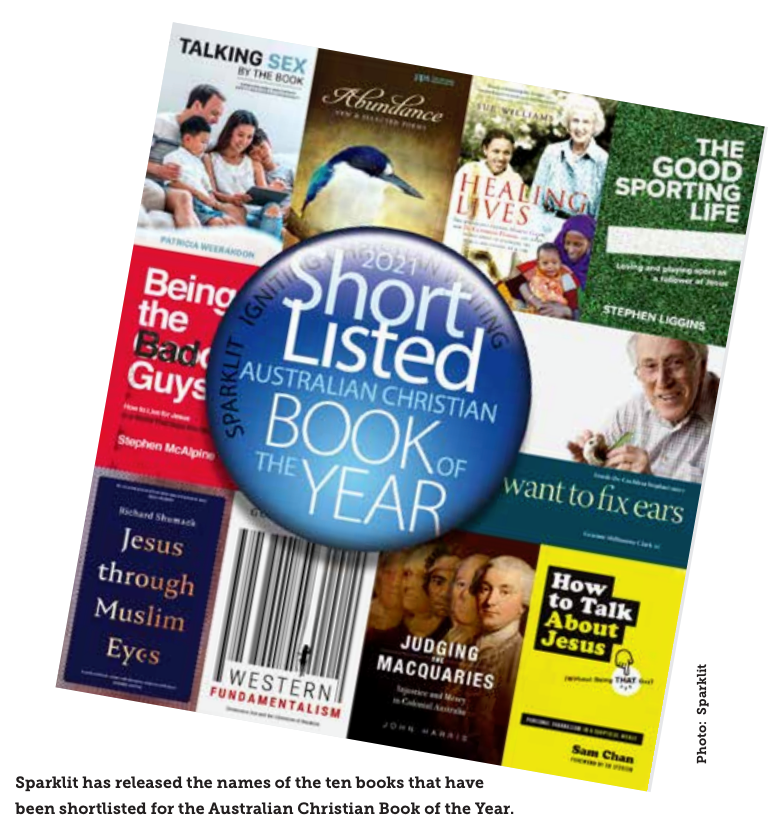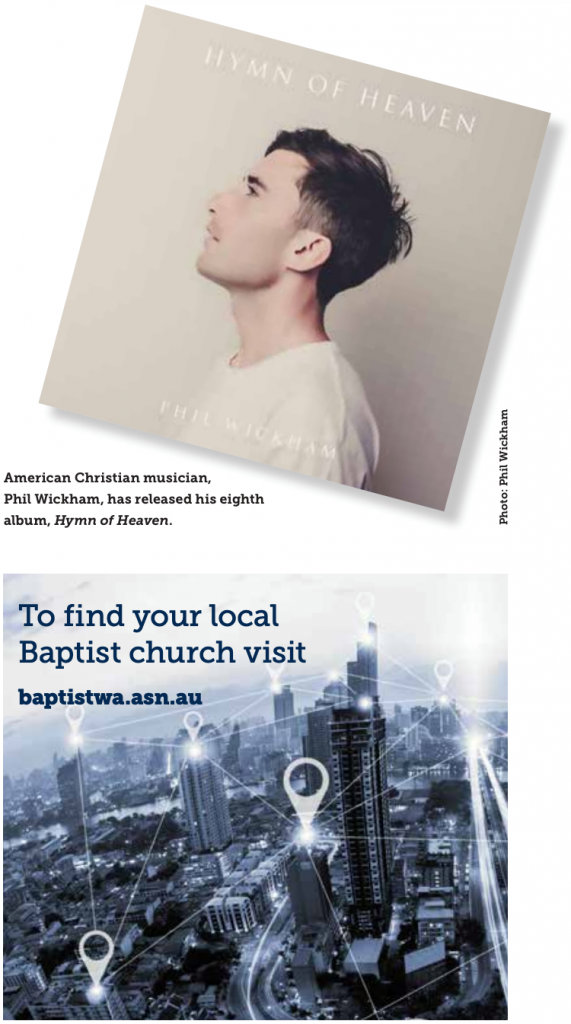A book about a bamboo camel was launched at a Woodvale Baptist Church service recently.
Woodvale Baptist Church Senior Pastor, Rob Furlong, said, “We’re proud to have launched Ross James’s memoir, Ascent Crest Perspective: the making of a bamboo camel, because we believe that he has a message for all of us. And, the fact is, when Ross describes himself as a bamboo camel, he really means it!”
Dr Ross James is the founder of Health Communication Resources Inc., which has pioneered community-centred media ministries with faith-based organisations in Asia and Africa, and WA’s Mid West.
Ross and his wife, Jill, have been members of Woodvale for over 20 years and their international ministry has been supported by the church for many of those years. Ross is a story teller, so his memoir offers story after story that outline unexpected career changes (a third-generation funeral director to a journalist to a health communication specialist) and ministry in the Seychelles Islands, the Philippines, Pakistan and many other Asian locations.
Rob Furlong said, “Ross delves into 40 years of journaling to try and understand how Providence designed him for a purpose. With great vulnerability and insight he concludes — and this is why we have so much to learn from Ross — he concludes that he isn’t complete, but the pieces that are left are enough for Providence. It’s a truly authentic reflection of someone’s dependence on Providence to maintain a steadfast life lived in response to circumstances that few are called upon to endure.

“There’s lots of laugh-out-loud stories, but they all add to the progression of evidence that for the purposes of Providence, Ross had to be designed as a bamboo camel, flexible and tough enough to endue harsh ministry environments.
“It’s a fascinating and encouraging story for us all”, said Pastor Rob. “Lloyd Porter (Vose Campus, Morling College) says ’it is a hard-hitting and humble mission memoir’, and Graham Mabury says the memoir ‘drips with perspective that comes from having climbed the mountain but reflected with honesty and humility’. The memoir has all that and more.“
For more information about “Ascent, Crest, Perspective – the Making of a Bamboo Camel”, go to thebamboocamel.com.au







